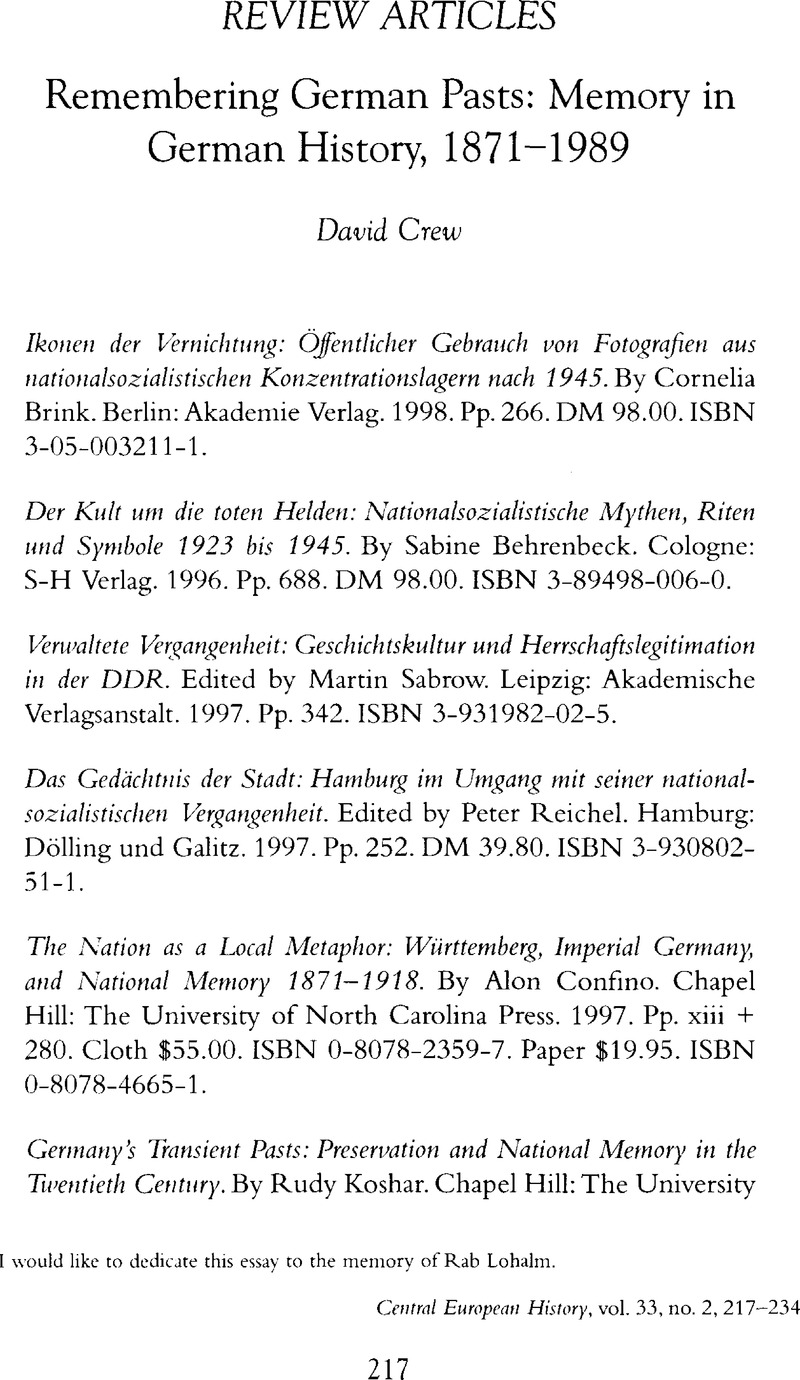Published online by Cambridge University Press: 16 December 2008

1. On this point, see in particular Kuhn, Annette, Family Secrets: Acts of Memory and Imagination (London, 1995)Google Scholar, chap. 7. “A Phantasmagoria of Memory,” 105–21.
2. See for example, Rosenthal, Gabriele, ed., Der Holocaust im Leben von drei Generationan: Familien von Überlebenden der Shoah und von Nazi-Tätern (Giessen, 1997)Google Scholar, esp. 298.
3. Ulrike Gleixner und Kämper, Gabriele, “Kennt Erinnern nur ein Geschlecht?,” Report on international conference on: Memory and the Second World War in International Comparative Perspective, 26–28 April 1995, Werkstattgeschichte (1996): 102Google Scholar. On the problem more generally, see Lüdtke, Alf, “‘Coming to Terms with the Past’: Illusions of Remembering, Ways of Forgetting Nazism in West Germany” in Journal of Modern History 65 (09 1993): 542–72.CrossRefGoogle Scholar
4. Rousso, Henry, The Vichy Syndrome: History and Memory in France since 1944 (Cambridge, MA. 1991), 219–71.Google Scholar
5. Wiedmer, Caroline, The Claims of Memory: Representations of the Holocaust in Contemporary Germany and France (Ithaca, 1999), 166.Google Scholar
6. See for example, Rosenfeld, Gavriel D., “Monuments and the Politics of Memory: Commemorating Kurt Eisner and the Bavarian Revolutions of 1918–1919 in Postwar Munich,” Central European History 30, no. 2 (1997): 221–52.CrossRefGoogle Scholar